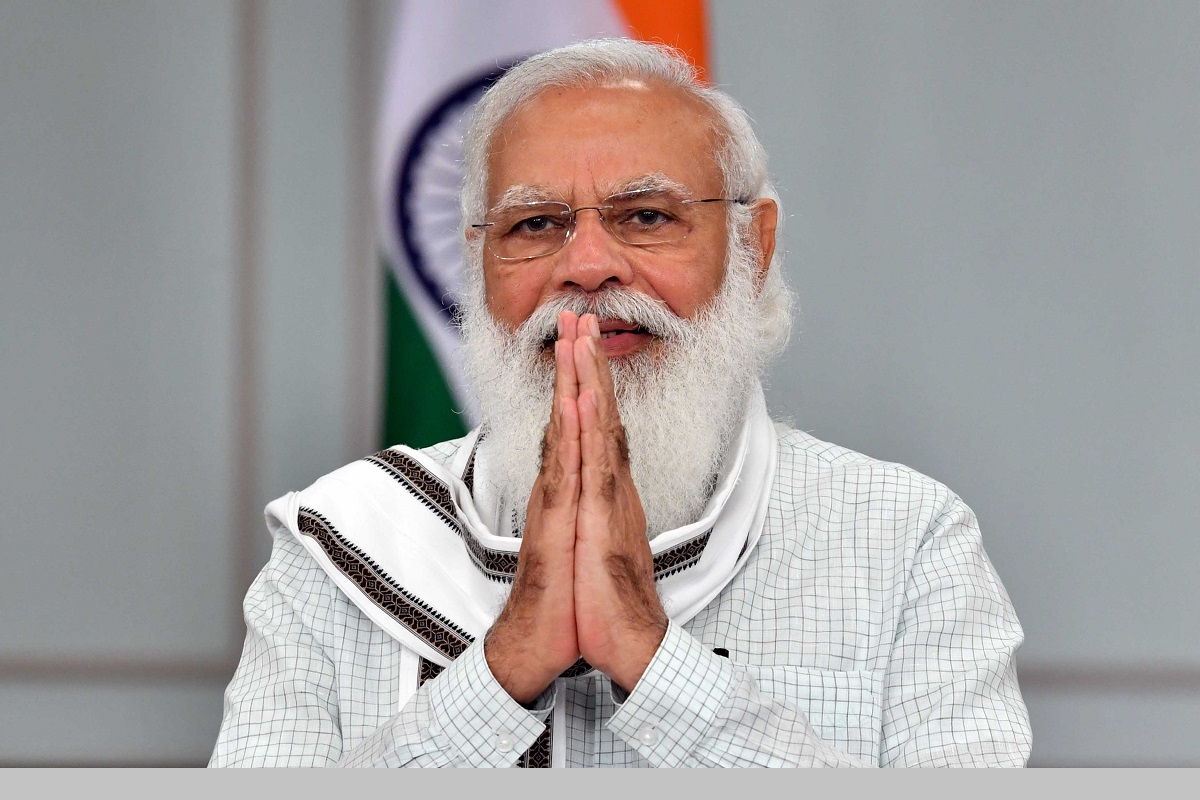Union Cabinet approves India-UAE pact on economic corridor
The aim of the IGFA is to enhance the bilateral relations and to further strengthen the relations between the two countries in the ports, maritime and logistics sectors.
The PM emphasised that now it was time to convert these Fintech initiatives into a Fintech revolution. “A revolution that helps to achieve financial empowerment of every single citizen of the country”, he said.

File photo
Observing that India has proved to the world that it was second to none when it came to adopting technology or innovating around it, Prime Minister Narendra Modi on Friday said fully digital banks, without any physical branch offices, were already a reality and might become commonplace in less than a decade.
”As humans evolved, so did the form of our transactions. From barter system to metals, from coins to notes, from cheques to cards, today we have reached here,” he said while inaugurating InFinity Forum, a thought leadership Forum on FinTech through video conference. The forum has participation from over 70 countries.
Modi said the history of currency has shown tremendous evolution. In this connection, he pointed out that last year, in India, mobile payments exceeded ATM cash withdrawals for the first time. Transformational initiatives under Digital India, he noted, have opened doors for innovative Fintech solutions to be applied in governance.
Advertisement
The PM emphasised that now it was time to convert these Fintech initiatives into a Fintech revolution. “A revolution that helps to achieve financial empowerment of every single citizen of the country”, he said.
Explaining how technology has also catalyzed financial inclusion, Modi pointed out that from less than 50 per cent of Indians having bank accounts in 2014, India has almost universalised it with 430 million Jan Dhan accounts in the last seven years.
He also listed initiatives like 690 million RuPay cards clocking 1.3 billion transactions last year; UPI processing around 4.2 billion transactions in just last month; almost 300 million invoices were uploaded on the GST portal every month; despite the pandemic, about 1.5 million railway tickets were getting booked online every day; last year, FASTag processed 1.3 billion seamless transactions; PM Svanidhi enabled access to credit for small vendors across the country; e-RUPI enabled targeted delivery of specified services without leakages.
The PM stressed that financial inclusion was the driver of the Fintech Revolution. Explaining further, he said, Fintech was resting on 4 pillars: income, investments, insurance and institutional credit. “When income grows, investment becomes possible. Insurance coverage enables greater risk-taking ability and investments. Institutional credit gives wings for expansion. And we have worked on each of these pillars. When all these factors come together, you suddenly find so many more people participating in the financial sector,” he elaborated.
Modi stressed the importance of trust in Fintech in the light of the wide acceptance of these innovations among the masses. The common Indian has shown immense trust in the Fintech ecosystem by embracing digital payments and such technologies. “This trust is a responsibility. Trust means that you need to ensure that the interests of people are secured. Fintech innovation will be incomplete without Fintech security innovation”, he said.
The Prime Minister commented on the wider applicability of India’s experience in the Fintech area. He stressed India’s tendency to share experiences and expertise with the world and learn from them as well. “Our Digital Public Infrastructure solutions can improve the lives of citizens around the world,” he added.
Advertisement